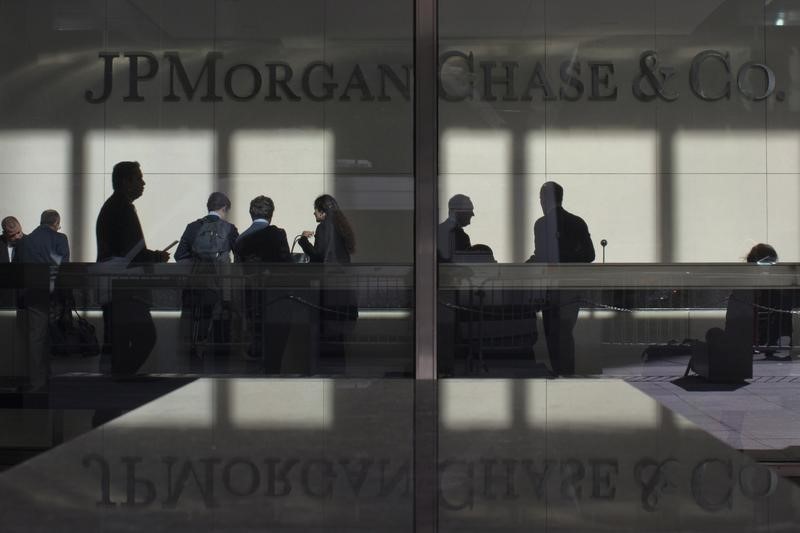(Bloomberg) -- JPMorgan Chase & Co (NYSE:JPM). was hit by the Federal Reserve’s about-face on interest rates in the second quarter, posting its fourth-straight decline in fixed-income trading revenue and warning that lending income will fall in the second half.
The largest U.S. bank on Tuesday reported a drop in bond trading and cut its full-year outlook for net interest income -- revenue from customers’ loan payments minus what the bank pays depositors -- by $500 million. NII accounted for about half the New York-based company’s revenue last year.
Less revenue from loans is a problem for JPMorgan, which has been leaning on its traditional lending business to weather four back-to-back quarters of declining revenue from trading stocks and bonds. Fed Chairman Jerome Powell last week opened the door to a July cut in interest rates, stressing a cooling global economy and trade friction. It’s a reversal from the start of the year, when investors were betting the Fed would boost interest rates.
JPMorgan notched the highest profit in U.S. banking history in 2018 with $32.5 billion, spurred in part by rising interest rates and the Trump administration’s corporate tax cuts. The bank now sees net interest income at $57.5 billion this year after saying in April it could increase to more than $58 billion.
Shares of the company, which climbed 17% this year through Monday, fell 1.5% at 7:10 a.m. in early New York trading.
Citigroup Inc (NYSE:C). on Monday said net interest revenue increased 2% in the second quarter, which was roughly in line with analysts’ average estimate. The bank left its full-year growth outlook for the figure unchanged at 4%.
JPMorgan’s revenue from stock and bond trading slipped 6% in the second quarter, excluding a one-time gain related to the initial public offering of Tradeweb Markets Inc. Analysts had expected a 5% drop. Investment-banking fees fell 9% to $1.8 billion.
Revenue from the corporate and investment bank slipped 3% from last year’s record to $9.6 billion as market uncertainty drove investors to the sidelines and damped corporate sentiment.
Non-interest expense rose by 2% to $16.3 in the quarter, less than the average analysts’ estimate of $16.4 billion. The bank said in February adjusted expenses for the full-year would rise to less than $66 billion from about $63 billion last year.
JPMorgan has been ramping up spending as it expands its consumer bank into new states for the first time in more than a decade, uses technology to transform how its corporate and investment bank does business and constructs a new headquarters in New York.
